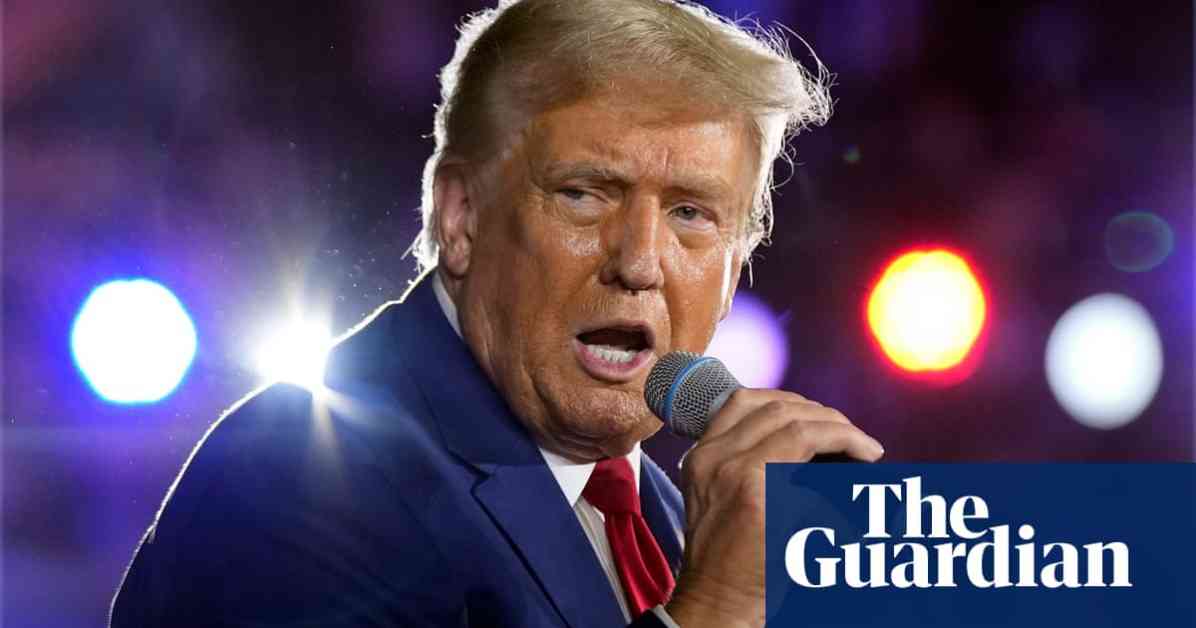Trump Threatens Google with Criminal Charges if Reelected
President Donald Trump has once again stirred controversy with his recent threat to pursue criminal charges against Google if he is reelected for a second term in office. The accusation comes amidst claims that the tech giant has been unfairly displaying negative news articles about him while promoting positive stories about his potential 2024 election opponent, Kamala Harris.
In a post on his social media platform, Truth Social, Trump declared, “It has been determined that Google has illegally used a system of only revealing and displaying bad stories about Donald J Trump, some made up for this purpose while, at the same time, only revealing good stories about Comrade Kamala Harris.” He went on to call this alleged activity “illegal” and expressed his hopes that the Justice Department would criminally prosecute Google for what he deemed as blatant interference in elections.
However, Google has vehemently denied these claims, stating that they do not manipulate search results to benefit any particular party. The company emphasized that both campaign websites consistently appear at the top of search results for relevant and common queries. Despite this, conservatives have long criticized Google for allegedly favoring Democrats in their search results.
Conservative Complaints and Allegations
Conservative groups, such as the right-wing Media Research Center, have previously issued reports accusing Google of bias in favor of Democrats. These allegations have fueled the ongoing narrative that tech companies like Google are actively working against conservative interests. The Trump campaign, in particular, has been vocal about their grievances with Google’s search results and the alleged promotion of positive news coverage for Kamala Harris.
One specific point of contention raised by the Trump campaign is the use of the “sponsored” feature on Google search results by the Harris campaign. The campaign has been accused of promoting positive news coverage from various outlets, including the Guardian, with headlines allegedly rewritten to favor Harris. These tactics have only served to deepen the divide between the Trump administration and tech companies like Google.
Trump’s Pattern of Threats and Retaliation
Trump’s recent threat against Google is just the latest in a series of instances where he has vowed to prosecute his supposed opponents. Earlier this month, he took to Truth Social to warn of potential criminal charges against individuals who he believes engaged in election fraud against him. This aggressive stance has become a hallmark of Trump’s rhetoric, as he continues to target those he perceives as threats to his power and influence.
At a news conference, Trump even called for former House speaker Nancy Pelosi to face criminal prosecution for her alleged failure to prevent the January 6 Capitol attack. The attack, carried out by Trump supporters seeking to overturn the results of the 2020 election, resulted in chaos and violence that shocked the nation. Trump’s insistence on holding Pelosi accountable for the events of that day further underscores his willingness to use the justice system as a tool for retribution.
During a campaign rally in Michigan, Trump escalated his rhetoric by calling for an investigation into Pelosi and her husband over reports that they had sold Visa stock before the justice department brought an antitrust lawsuit against the credit-card company. This brazen move to target political adversaries reflects Trump’s unyielding determination to punish those he perceives as standing in his way.
The Future of Tech and Politics
The ongoing clash between Trump and tech companies like Google highlights the growing intersection of technology and politics in the modern era. As social media platforms and search engines play an increasingly influential role in shaping public opinion, the issue of political bias and manipulation has become a hot-button issue for both conservatives and liberals.
The debate over the alleged bias of tech companies is unlikely to be resolved anytime soon, as both sides remain entrenched in their positions. While conservatives continue to decry what they see as unfair treatment by tech giants, liberals argue that these accusations are unfounded and serve to undermine the credibility of legitimate news sources.
As the 2024 election looms on the horizon, the relationship between tech companies and political figures like Trump will undoubtedly continue to be a point of contention. Whether Trump’s threats against Google will materialize into actual legal action remains to be seen, but one thing is certain: the intersection of technology and politics is a volatile and complex landscape that will shape the future of democracy for years to come.












